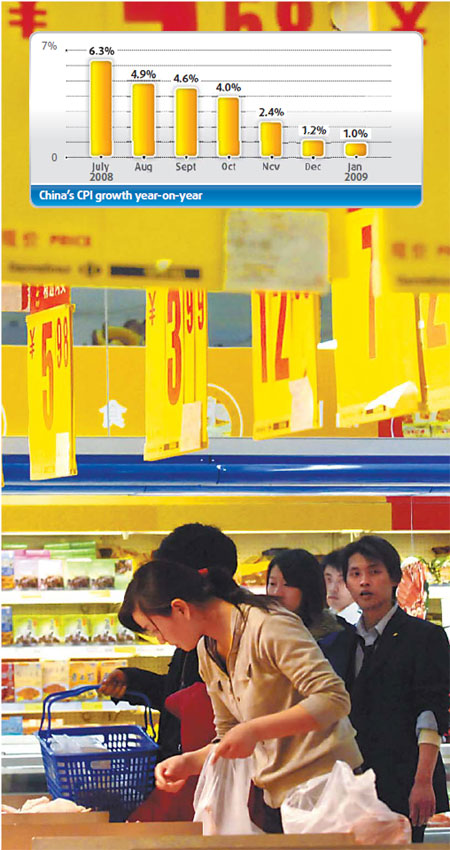
The global financial crisis that has destroyed the wealth of investors on Wall Street and forced exporters in China into bankruptcy seems to have had little effect on Li Hong.
For Li, a public servant who lives in Liuyang, a small town in central Hunan province, the financial crisis is just an abstract term on the TV news.
Life for Li and her family has not changed much since the global financial storm hit last October. She received her year-end bonus of 20,000 yuan in December. She spent 400 yuan on a new hairdo to celebrate the Chinese New Year. She sold her two apartments in town and bought a 700,000-yuan villa with her parents.
Li also drove her family in her new Toyota Corolla to a neighboring province, where they enjoyed a relaxing vacation over the Spring Festival holiday.
While white-collar workers in eastern China live in fear of wage cuts or losing their jobs, life remains comfortable for people like Li, who live in the central and western regions. Most of them have stable jobs at government institutions or in stated-owned companies. They earn a good salary, by local standards, and own an apartment and a car. They travel at least once in a year.
Li and her colleagues do not expect to have their wages cut. Li's pay has risen steadily from 100 yuan to 1,000 yuan a month over the past 10 years. Her monthly bonus has also increased by 10 percent. Li's health care costs are covered by the government. If she worries about anything, it is paying for her son's education.
Li and her colleagues are relatively unscathed by the financial crisis because Hunan, and China's central and western regions in general, appear to be more crisis-resistant than eastern regions, which are more export-dependent and more financially intertwined with the global economy.
While eastern regions experience a painful slowdown, the economies of the central and western regions are likely to continue to grow at a healthy pace, according to a recent report by the Standard Chartered Bank, a British bank headquartered in London.
The report says China's central and western regions will be the nation's economic growth engine in the years ahead. Government-led investment plans are likely to be more effective in these regions and could absorb 70 percent of total fiscal spending, it says.
The Ministry of Finance recently announced that provincial governments will issue $30 billion in bonds in a move to maintain stable economic growth. A large share of these bonds will be issued by less developed central and western provinces, as those regions are in need of fresh capital, the ministry said.
Experts say that central and western regions have been less impacted by the financial crisis because their economies are small in scale and their financial sectors are not as developed as in eastern provinces.
"The economy in the central and western regions largely depends on domestic demand rather than on exports and financial service. This tends to mitigate some of the impact of the global financial crisis," said Wu Yongbao, a researcher with the Wuhan Academy of Social Sciences.
In the long term, however, analysts warn that the global drop in resource prices could have a profound effect on the less-developed central and western regions, which export raw materials.

(China Daily March 23, 2009)